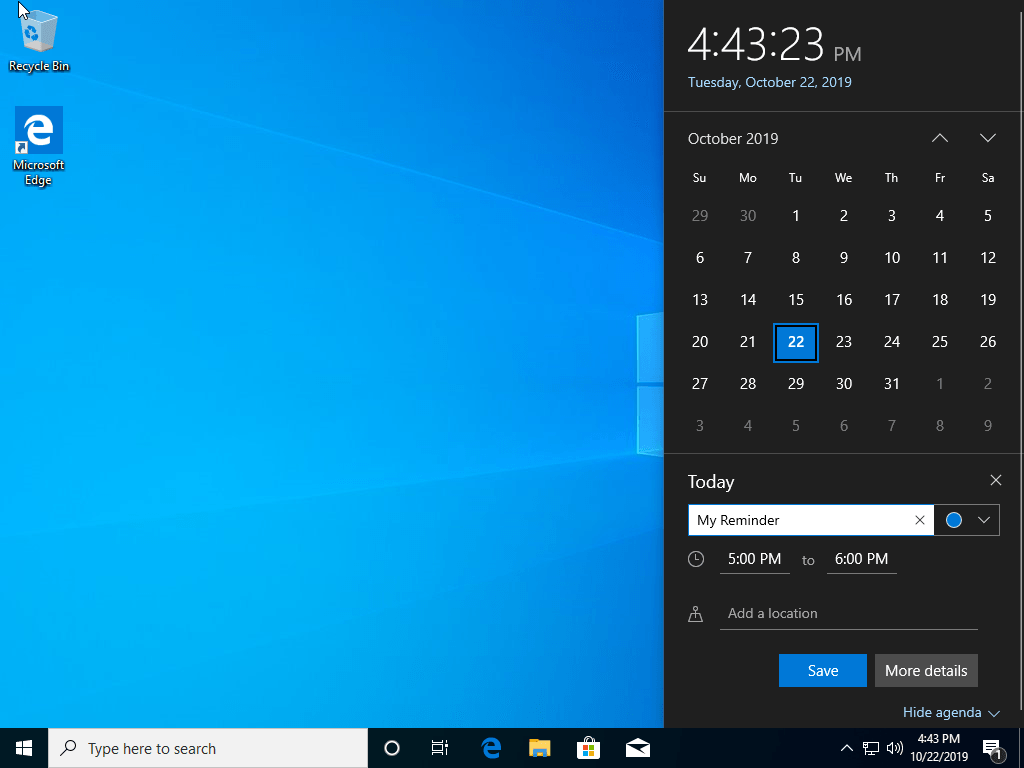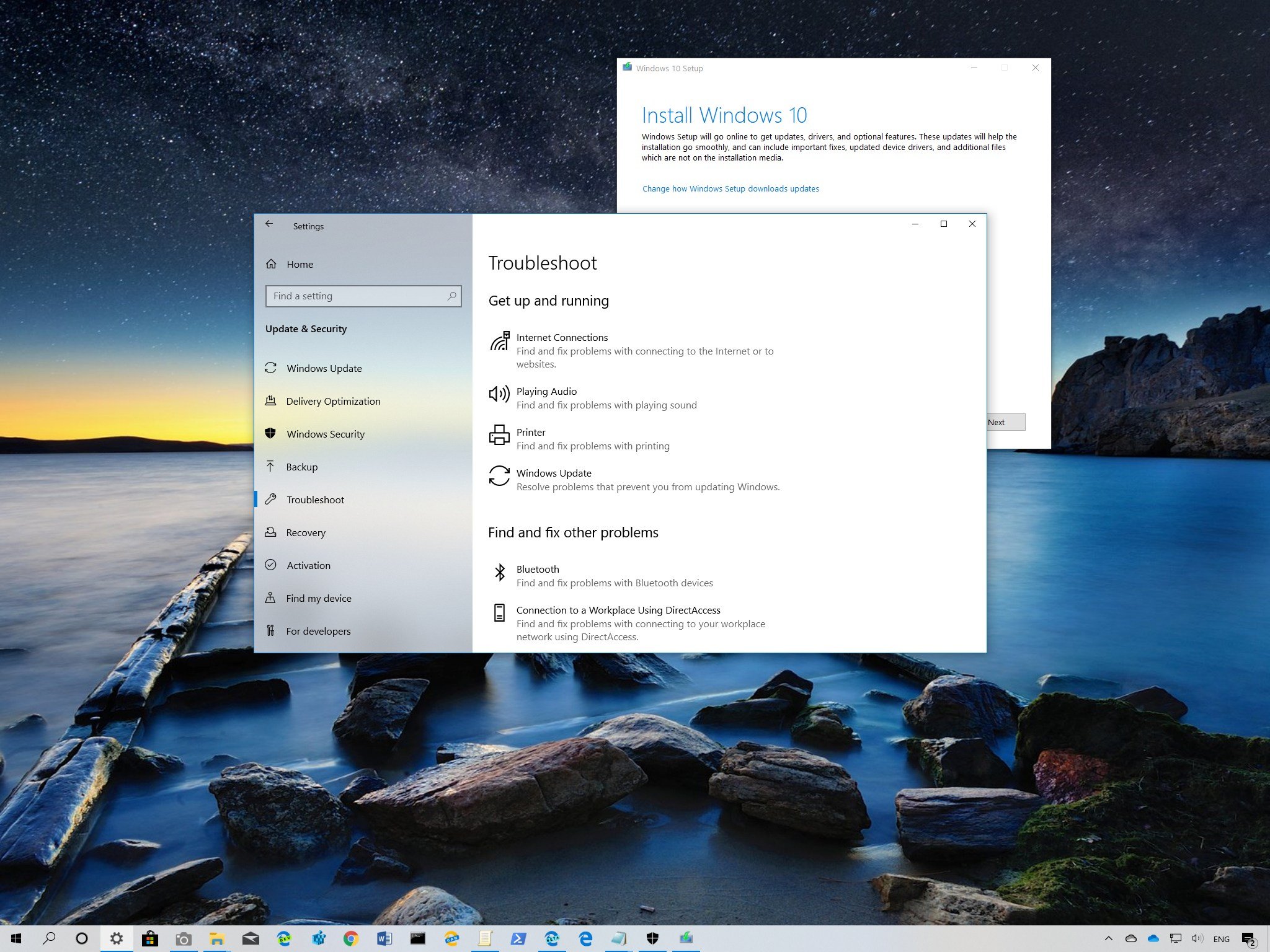-->
Black Windows 10 Black spider Enterprise is the first Windows-based penetration testing distribution with Linux integrated. The system is activated with a digital license for Windows Enterprise. It supports Windows Apps and Linux Apps, GUIs and Terminal Apps. It comes with a tone.
Find information on known issues and the status of the rollout for Windows 10, version 1909 and Windows Server, version 1909. Looking for a specific issue? Press CTRL + F (or Command + F if you are using a Mac) and enter your search term(s). Want the latest Windows release health updates? Follow @WindowsUpdate on Twitter.
Windows 10, version 1909 is designated ready for broad deployment for all users via Windows Update. We recommend commercial customers running earlier versions of Windows 10 nearing end of support begin broad deployments of Windows 10, version 1909 in their organizations. |
- Windows IT Pro Blog: Windows 10, version 1909 delivery options; cancel. Turn on suggestions. Auto-suggest helps you quickly narrow down your search results by suggesting possible matches as you type.
- If you're already a Windows user, download a Windows 10 upgrade so you can experience the latest in Windows technology. If you work with big data, create large graphics, edit videos or need CAD (Computer Aided Design), Windows 10 Pro for Workstations is for you.
- New Windows 1909 and 1903 updates fix File Explorer search, but it still has bugs. Microsoft's new update should address some complaints by Windows 10 users who rely on the new File Explorer.
| Windows 10, version 20H2 is now available Find out how to get the update > | What’s new for IT pros Explore the latest features and servicing innovations in Windows 10, version 20H2 > |
Known issues
| Summary | Originating update | Status | Last updated |
| You might encounter issues with KB4524244 You might encounter issues trying to install or after installing KB4524244 | N/A KB4524244 2020-02-11 | Resolved | 2021-01-12 17:05 PT |
| “Reset this PC” feature might fail “Reset this PC” feature is also called “Push Button Reset” or PBR. | N/A KB4524244 2020-02-11 | Resolved KB4598479 | 2021-01-12 10:00 PT |
Issue details
February 2020
You might encounter issues with KB4524244 | ||
| Status | Originating update | History |
| Resolved | N/A KB4524244 2020-02-11 | Resolved: 2021-01-12, 05:05 PT Opened: 2020-02-15, 12:02 PT |
You might encounter issues trying to install or after installing KB4524244. Affected platforms:
Workaround: To help a sub-set of affected devices, the standalone security update ( KB4524244) has been removed and will not re-offered from Windows Update, Windows Server Update Services (WSUS) or Microsoft Update Catalog. Note This does not affect any other update, including Latest Cumulative Updates (LCUs), Monthly Rollups or Security Only updates. If this update is installed and you are experiencing issues, you can uninstall this update.
Resolution: This issue was resolved in KB4535680. This update should only be offered if it is applicable to your device. You might need to update UEFI firmware of your devices or adjust other settings before deploying this update. For more information, see KB4535680. | ||
“Reset this PC” feature might fail | ||
| Status | Originating update | History |
| Resolved KB4598479 | N/A KB4524244 2020-02-11 | Resolved: 2021-01-12, 10:00 PT Opened: 2020-02-15, 12:02 PT |
Using the “Reset this PC” feature, also called “Push Button Reset” or PBR, might fail. You might restart into recovery with “Choose an option” at the top of the screen with various options or you might restart to your desktop and receive the error “There was a problem resetting your PC”. Affected platforms:
Workaround: The standalone security update, KB4524244 has been removed and will not re-offered from Windows Update, Windows Server Update Services (WSUS) or Microsoft Update Catalog. Note This does not affect any other update, including Latest Cumulative Update (LCU), Monthly Rollup or Security Only update. If you have installed this update and are experiencing this issue, the following steps should allow you to reset your device:
Resolution: This issue was resolved in KB4598479. | ||
-->
Applies to
- Windows 10, version 1909
This article lists new and updated features and content that are of interest to IT Pros for Windows 10, version 1909, also known as the Windows 10 November 2019 Update. This update also contains all features and fixes included in previous cumulative updates to Windows 10, version 1903.
Servicing
Windows 10, version 1909 is a scoped set of features for select performance improvements, enterprise features and quality enhancements.
To deliver these updates in an optimal fashion, we are providing this feature update in a new way: using servicing technology. Users that are already running Windows 10, version 1903 (the May 2019 Update) will receive this update similar to how they receive monthly updates. If you are running version 1903, then updating to the new release will have a much faster update experience because the update will install like a monthly update.
If you are updating from an older version of Windows 10 (version 1809 or earlier), the process of updating to the current version will be the same as it has been for previous Windows 10 feature updates. For more information, see Evolving Windows 10 servicing and quality: the next steps.
Note: Devices running the Enterprise, IoT Enterprise, or Education editions of Windows 10, version 1909 receive 30 months of support. For more information about the Windows servicing lifecycle, please see the Windows lifecycle fact sheet.
Windows Server Update Services (WSUS)
Pre-release Windows 10 feature updates are now available to IT administrators using WSUS. Microsoft Endpoint Configuration Manager version 1906 or later is required. For more information, see Publishing pre-release Windows 10 feature updates to WSUS.
The Windows 10, version 1909 enablement package will be available on WSUS as KB4517245, which can be deployed on existing deployments of Windows 10, version 1903.

Windows Update for Business (WUfB)
If you are using WUfB, you will receive the Windows 10, version 1909 update in the same way that you have for prior feature updates, and as defined by your feature update deferral policy.
Security
Windows Defender Credential Guard
Windows Defender Credential Guard is now available for ARM64 devices, for additional protection against credential theft for enterprises deploying ARM64 devices in their organizations, such as Surface Pro X.

Microsoft BitLocker
BitLocker and Mobile Device Management (MDM) with Azure Active Directory work together to protect your devices from accidental password disclosure. Now, a new key-rolling feature securely rotates recovery passwords on MDM managed devices. The feature is activated whenever Microsoft Intune/MDM tools or a recovery password is used to unlock a BitLocker protected drive. As a result, the recovery password will be better protected when users manually unlock a BitLocker drive.
Key-rolling and Key-rotation
Windows 10, version 1909 also includes two new features called Key-rolling and Key-rotation enables secure rolling of Recovery passwords on MDM managed AAD devices on demand from Microsoft Intune/MDM tools or when a recovery password is used to unlock the BitLocker protected drive. This feature will help prevent accidental recovery password disclosure as part of manual BitLocker drive unlock by users.
Transport Layer Security (TLS)
An experimental implementation of TLS 1.3 is included in Windows 10, version 1909. TLS 1.3 disabled by default system wide. If you enable TLS 1.3 on a device for testing, then it can also be enabled in Internet Explorer 11.0 and Microsoft Edge by using Internet Options. For beta versions of Microsoft Edge on Chromium, TLS 1.3 is not built on the Windows TLS stack, and is instead configured independently, using the Edge://flags dialog. Also see Microsoft Edge platform status.

Virtualization
Windows Sandbox
Windows Sandbox is an isolated desktop environment where you can install software without the fear of lasting impact to your device. This feature is available in Windows 10, version 1903. In Windows 10, version 1909 you have even more control over the level of isolation.
Windows Virtual Desktop
Windows Virtual Desktop (WVD) is now generally available globally!
Windows Virtual Desktop is a comprehensive desktop and app virtualization service running in the cloud. It’s the only virtual desktop infrastructure (VDI) that delivers simplified management, multi-session Windows 10, optimizations for Microsoft 365 Apps for enterprise, and support for Remote Desktop Services (RDS) environments. Deploy and scale your Windows desktops and apps on Azure in minutes, and get built-in security and compliance features. Windows Virtual Desktop requires a Microsoft E3 or E5 license, or a Microsoft 365 E3 or E5 license, as well as an Azure tenant.
Deployment
Microsoft Endpoint Manager
Windows 10 Pro Black Edition 1909 Vdb
Configuration Manager, Intune, Desktop Analytics, Co-Management, and Device Management Admin Console are now Microsoft Endpoint Manager. See the Nov. 4 2019 announcement. Also see Modern management and security principles driving our Microsoft Endpoint Manager vision.
Windows 10 Pro and Enterprise in S mode
You can now deploy and run traditional Win32 (desktop) apps without leaving the security of S mode by configuring the Windows 10 in S mode policy to support Win32 apps, and deploy them with Mobile Device Management (MDM) software such as Microsoft Intune. For more information, see Allow Line-of-Business Win32 Apps on Intune-Managed S Mode Devices.

SetupDiag
SetupDiag version 1.6.0.42 is available.
SetupDiag is a command-line tool that can help diagnose why a Windows 10 update failed. SetupDiag works by searching Windows Setup log files. When searching log files, SetupDiag uses a set of rules to match known issues. In the current version of SetupDiag there are 53 rules contained in the rules.xml file, which is extracted when SetupDiag is run. The rules.xml file will be updated as new versions of SetupDiag are made available. .
Windows Assessment and Deployment Toolkit (ADK)

Windows 10 Black Edition Download
A new Windows ADK will not be released for Windows 10, version 1909. You can use the Windows ADK for Windows 10, version 1903 to deploy Windows 10, version 1909.
Desktop Analytics
Desktop Analytics is now generally available globally! Desktop Analytics is a cloud-connected service, integrated with Configuration Manager, which gives you in performance. These cores are called 'favored cores' as they can offer better performance than the other cores on the die.
With Intel Turbo Boost Max Technology 3.0, an operating system will use information stored in the CPU to identify which cores are the fastest and then push more of the CPU intensive tasks to those cores. According to Intel, this technology 'delivers more than 15% better single-threaded performance'.
Update Windows 10 1909
Debugging
Additional debugging capabilities for newer Intel processors have been added in this release. This is only relevant for hardware manufacturers.
Efficiency
General battery life and power efficiency improvements for PCs with certain processors have been added in this release.
See Also
Windows 10 1909 Pro Iso
What's New in Windows Server: New and updated features in Windows Server.
Windows 10 Features: General information about Windows 10 features.
What's New in Windows 10: See what’s new in other versions of Windows 10.
What Windows 10, version 1909 Means for Developers: New and updated features in Windows 10 that are of interest to developers.
Features and functionality removed in Windows 10: Removed features.
Windows 10 features we’re no longer developing: Features that are not being developed.
How to get the Windows 10 November 2019 Update: John Cable blog.
How to get Windows 10, Version 1909: Enablement Mechanics: Mechanics blog.
What’s new for IT pros in Windows 10, version 1909: Windows IT Pro blog.